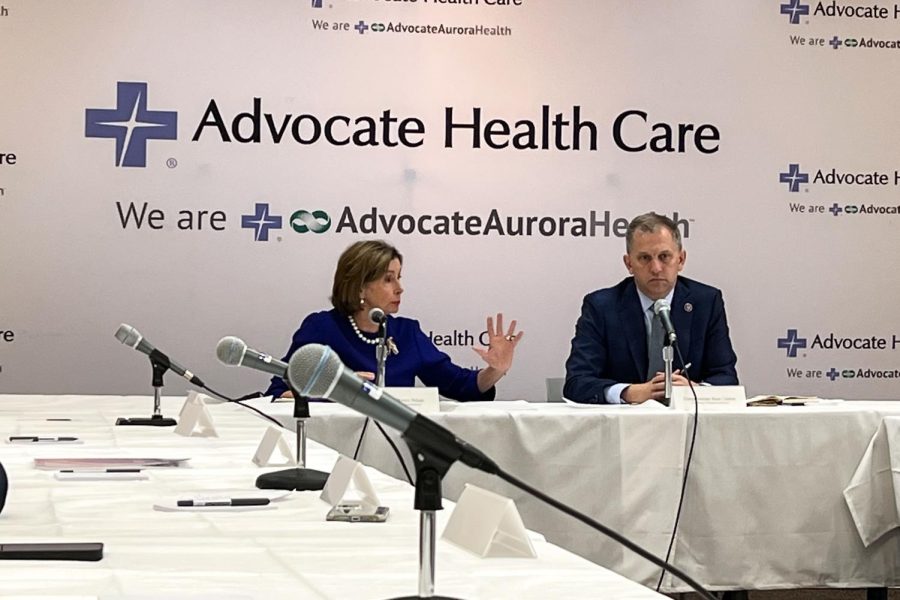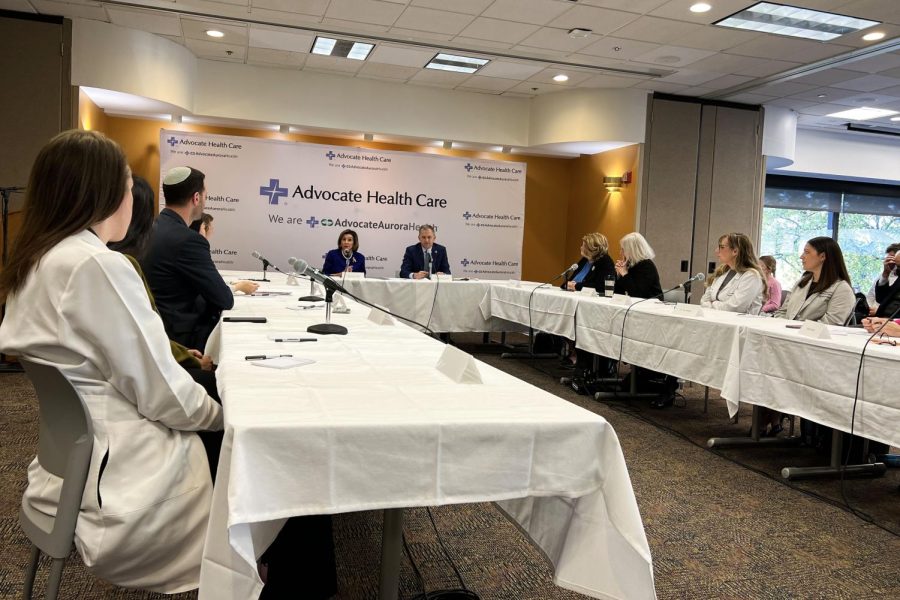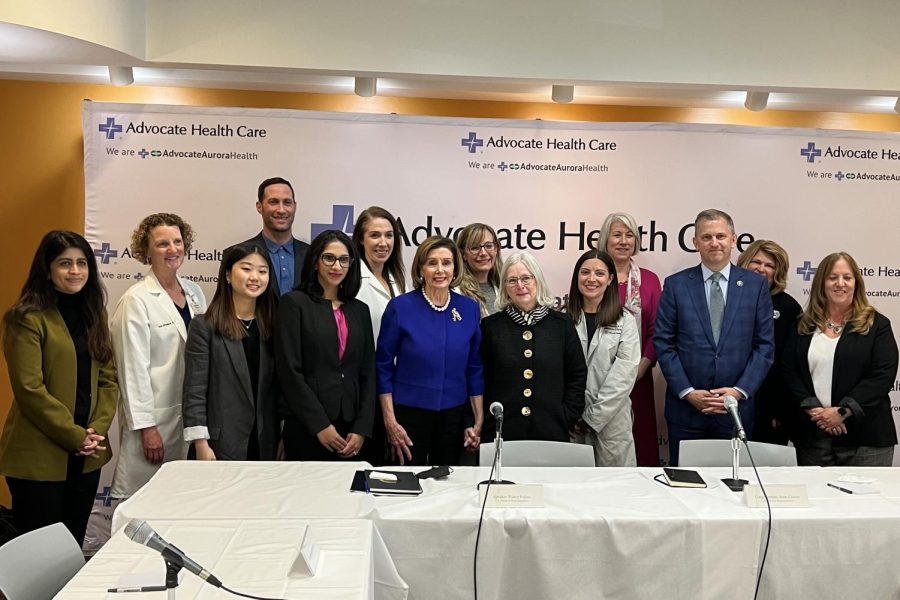Nancy Pelosi, Sean Casten Talk To Illinois Experts About New Abortion Obstacles
Nancy Pelosi joined Sean Casten to talk with healthcare experts about the difficulties they face after the overturning of Roe.
Nancy Pelosi and Sean Casten take a photo with the roundtable panelists.
October 24, 2022
Abortion doctors and their patients face mounting obstacles that may be about to get worse, according to healthcare providers at a roundtable hosted by U.S House Speaker Nancy Pelosi and U.S Rep. Sean Casten last week.
Amy Addante, an obstetrician-gynecologist at Advocate Lutheran General Hospital, described the atmosphere providers face while providing abortion care after the Supreme Court reversed its decision on Roe this past summer.
“What we have seen since the decision is chaos, desperation, and fear,” said Addante. “None of us went to med school to pretend like we’re lawyers to understand any of this.”
Ahead of the upcoming midterm elections, Democrat leaders have made protecting the right to abortion and other rights considered at risk, a cental focus for voters. In July, the House of Representatives passed the Women’s Health Protection Act. Pelosi said that these attempts were not supported by Republican representatives.

“Not one vote from the other side,” said Pelosi.
House Democrats also voted to pass the Right to Contraception Act, which received nine Republican votes.
In September, Senator Lindsay Graham introduced the Protecting Pain-Capable Unborn Children from Late-Term Abortions Act in the Senate, which would restrict access to abortions.
“Your right to choose is on the ballot,” said Pelosi.
Addante said her out-of-state colleagues are facing legal challenges interfering with their ability to provide the care they were trained to give. She told the story of a friend in Tennessee, a fetal medicine specialist, who took out a retainer for a criminal defense attorney using her own money.
“She is fearful of what might happen to her or her family if she exercises her medical judgment,” said Addante.
The roundtable participants met Oct. 21 at Advocate Good Samaritan Hospital in a gathering that included healthcare providers, abortion rights activists, mental health care professionals and executives of civil rights and abortion health groups. The roundtable provided an opportunity for lawmakers to hear issues providers face in providing abortion care.
Maliha Sayla, an obstetrician-gynecologist, said workplace restrictions preclude doctors from providing abortion care outside of a certain set of cases.

“I’m sending my patients over to my colleagues to provide care that I am completely capable of providing, but my patients are now having to travel and pay out of pocket costs because they’re no longer in network,” said Sayla “These are things I think that we can work on as well to make sure all of our patients have access without barriers, without needing a separate referral, without feeding this bottleneck in the work in a place where we’re supposed to be safe.”
Casten, of Downers Grove, is on the ballot in the upcoming midterm elections, and he stressed the importance of electing legislators who represent the values of the population.
“What the Dobbs decision did is take away rights from 50% of the Americans in this country,” said Casten. “Regardless of the timing of an election, if in a democratically elected government we choose not to protect the majority of the population from a diminution of their rights, we don’t deserve to have our jobs.”
In an interview after the event, Casten said that while Illinois is a safe haven state, legislating issues like this should remain a concern for Illinois voters as wait times for abortion providers can now be up to four weeks.
“If you are in Illinois, you’re a resident in Illinois, you’re looking for care that you are legally afforded to in Illinois, you still may not be able to find a doctor who’s available within the time frame that you need,” said Casten.



















Gricelda • Oct 27, 2022 at 8:21 am
Hi,
Courier Student News when are you going to get the other side of the pro-Abortion? The ProLife generation should also have a voice about the only message you want to share.
Latest estimates indicate 63.5 million preborn children have been aborted since Roe liveaction.org/news/latest-estimates-63-million-aborted-since-roe
How about going where the beauty of Life begins for us human beings (the womb) babyolivia.liveaction.org/index.html
And if you need outside resources there’s plenty at studentsforlife.org/fetaldevelopment
We are the ProLife generation and value all lives from conception (at every stage of development) until natural death ehd.org/prenatal-images-index.php
All Lives Matter (born & in the womb).
Thank you for sharing!